 By Pepper Parr
By Pepper Parr
January 18th, 2021
BURLINGTON, ON
It is a bold proposal.
Create a housing strategy for a city that is one of the more expensive places in the province to live – save Toronto.
And get the policy in place before the end of the current term of this council.
The timeline suggests this is going to be THE platform the Mayor creates for her re-election in October of 2022. If she does it right the rest of Council might ride back into office on her coat tails.
The principal objective of the project is to develop an innovative Housing Strategy for the City of Burlington that sets out policies, tools and actions to address housing needs now and in the future.

The Housing Strategy will build on and support the Region’s Housing Strategy through the development of local solutions to housing issues in the City of Burlington.
The key outcomes of the City’s Housing Strategy include:
• Understanding the key players and their respective roles in housing;
• Understanding the current state of housing in Burlington and identifying current and future housing needs;
• Establishing a toolbox of best practices in housing, focusing on innovative practices and new, pioneering ideas;
• Developing of a set of action-oriented housing objectives and an associated implementation plan;
• Establishing where the City wants to focus or prioritize efforts to address housing issues in the City.
The creating of a strategy will provide an opportunity to look for creative and innovative solutions to address local housing issues through the consideration of a variety of planning policy and financial tools, partnership, collaboration and advocacy opportunities, strategies and initiatives.
The players
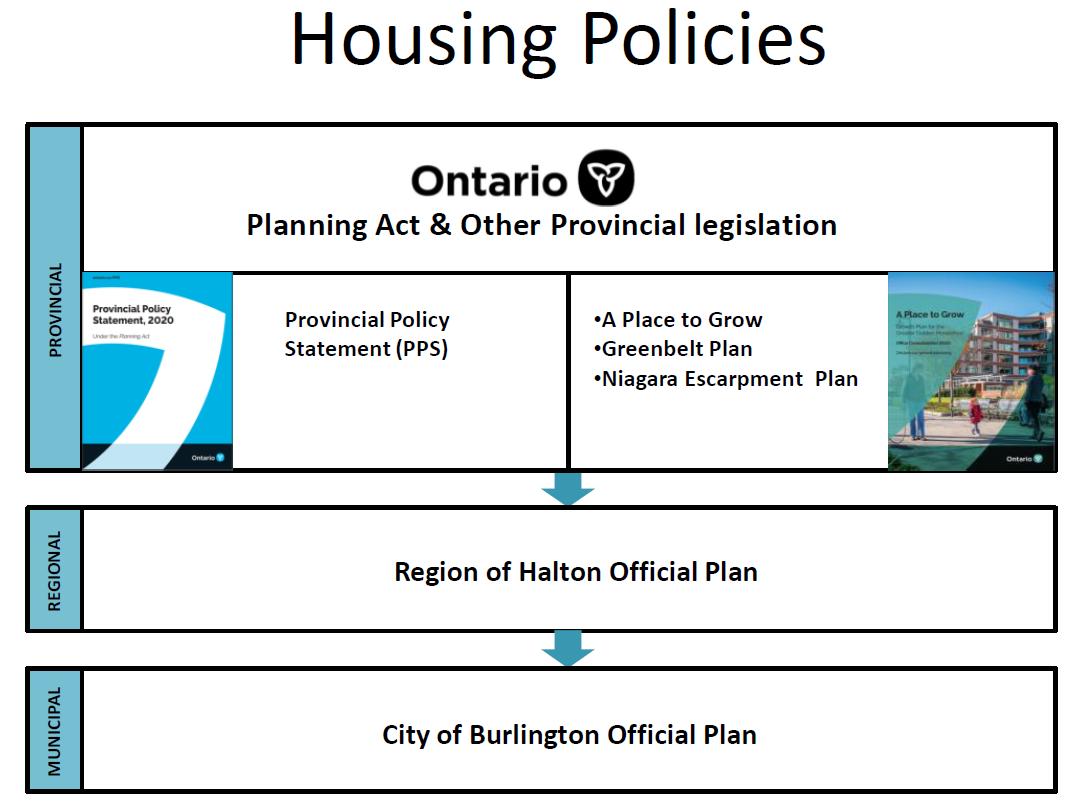
The federal government has a finger in the pie – they create a national strategy, provide some funding and let the provinces work it out. Each province develops its plan, sometimes with funding. Burlington is part of the Halton Region – the Region creates the policy and for the most part, runs the plans. Burlington appears to want to break that pattern and do something unique on its own.
Just about everyone is in the housing game.
The federal government has been chipping away at a federal program with CMHC (Central Mortgage and Housing) playing an innovative leadership role.
The province’s Ministry of Housing has their fingers in the mix and, depending on the stripe and colour of the government, it can be developer-driven or something a little more liberal and progressive.
Toronto has always been a leader.
The Regional governments have played a role but in Halton’s case it was never very driven or creative.
The Region produces an annual report on what exists, what it costs and where the shortfall is.
That shortfall is always on the lower end of the economic scale.
Halton has a policy of buying units in high rise developments and renting those out. The co-op movement, including Habitat for Humanity, builds housing that puts homes in place.
During her first term as Councillor for Ward 2 Marianne Meed Ward was instrumental in convincing the Molinaro Group to work with the Region. The result was 15 units being sold to the Region which became part of their inventory.
And then there is the individual investor who might own a small apartment complex or a couple of triplexes.
In Burlington the development community has found the high end condominium market to be their sweet spot.
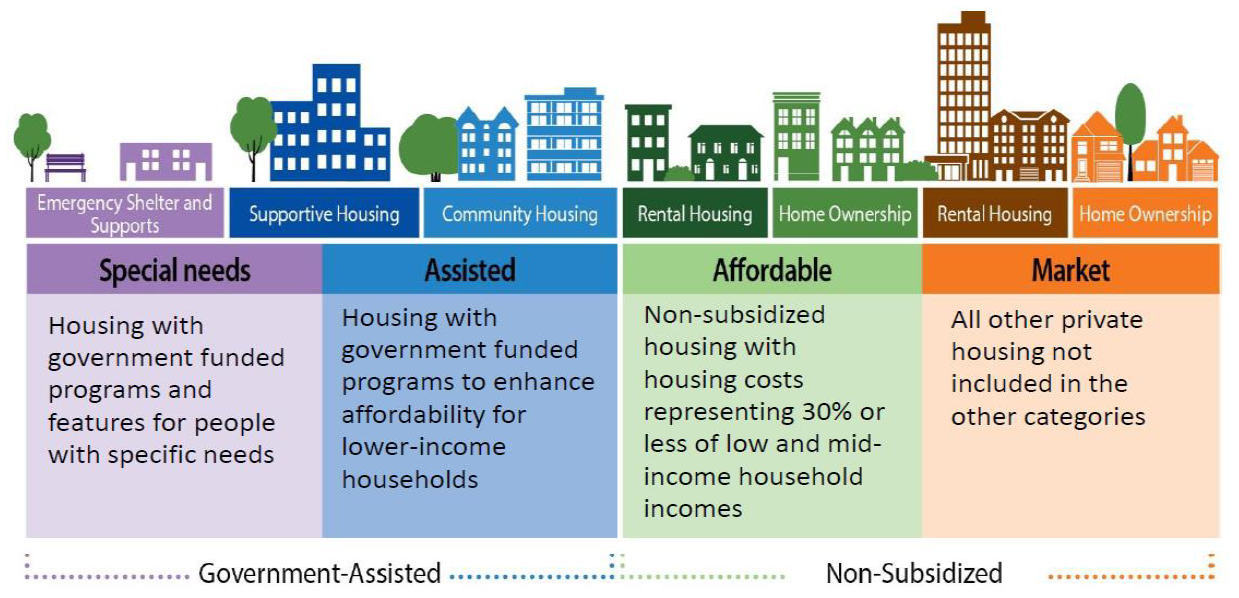
There is a clear division on what the governments will subsidize and what they leave to the private sector.
Burlington is a lower tier municipality within the Region of Halton; social housing is a Regional responsibility.
This current city council has decided they want to do better than the Regional policy partly for ideological reasons and partly to create housing for people in the local labour force.
Many people at the Fearman’s plant can’t afford to live in the city. Same with the hospital – Burlington is an expensive city.
There really isn’t anyone committed to building housing for the lower, affordable market. These are not houses for people on welfare; these are homes for people who want to get into the market and live in the city.
What exactly is this to phase of the project setting out to do within the next 18 months?
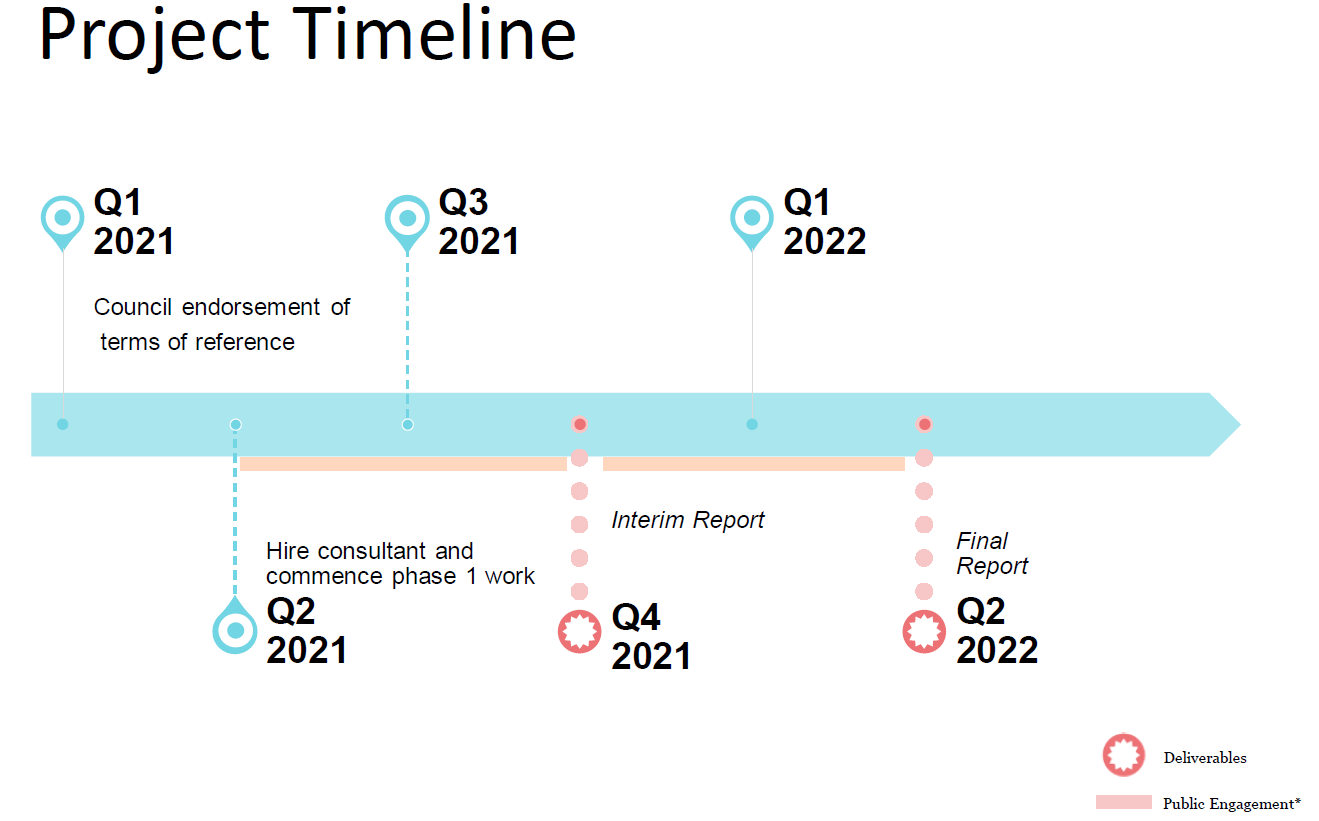
The City of Burlington’s new Official Plan recognizes that housing is fundamental to the social, economic and physical well-being of the city’s residents, and promotes a land use pattern that supports a full range and mix of housing options across the city. The identification of an urban structure and the establishment of a growth framework in the new Official Plan identifies areas in the city where growth and transition is expected.
These areas identified as the most appropriate locations for intensification will support the provision of a wider range of housing options in addition to jobs and more mobility choices. Other housing policies within the new Official Plan relate to housing supply, including the use of surplus lands; housing tenure including rental conversion policies, as well as policies to support the development of affordable, assisted and special needs housing.
The new Official Plan also contains an updated policy framework for additional residential units and provides direction for the development of a city-wide housing strategy that will consider a number of elements, including strategies, financial incentives and tools such as an Inclusionary Zoning by-law program.
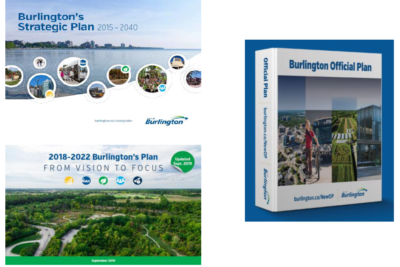 Burlington works from the policies set out in the Strategic Plan, which is a document with a 25-year time frame. Every term of Council (4 years) has a Vision to Focus (V2F) which sets out what city council hopes to achieve while they are in office.
Burlington works from the policies set out in the Strategic Plan, which is a document with a 25-year time frame. Every term of Council (4 years) has a Vision to Focus (V2F) which sets out what city council hopes to achieve while they are in office.
Each year the city creates two budgets: One for Capital Expenses and a second for Operations expenses.
The Housing Strategy is something this council wants to have in place for the next municipal election. They will pay for the work out of the current budget which is expected to be a whopper, due in large measure to expenses due to Covid and revenue losses as a result of Covid.
The City’s Housing Strategy project has been divided into two phases.
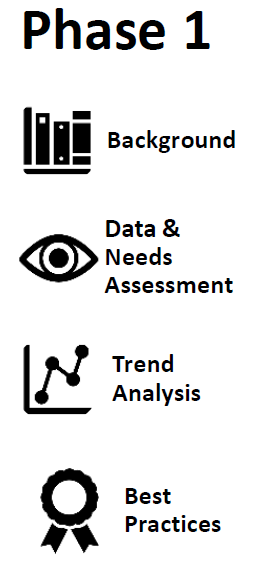 Phase 1 of the project will be consultant led and will deliver the necessary background information, data, analysis of needs and trends, and insight on best practices and more broadly new ideas to address local housing issues.
Phase 1 of the project will be consultant led and will deliver the necessary background information, data, analysis of needs and trends, and insight on best practices and more broadly new ideas to address local housing issues.
The Phase 1 deliverable will be the development of a made in Burlington innovative Housing Strategy, which will include a set of city-wide housing objectives supported by recommended action items, each with an associated implementation and monitoring plan.
The project consultant will also provide a recommended approach for phased implementation of the action items (short, medium and long term) for Council’s consideration.
Phase 2 of the project involves the implementation of the recommended actions contained within the Housing Strategy developed through the Phase 1 work and approved by Council.
Community engagement.
Council will always find time to talk about engaging the community.
The challenge is, when coming up with an engagement plan that actually engages, something falls between the cracks.
The Engagement Plan is a key deliverable to support the development of the Housing Strategy. The Plan is a strategic public document that will be developed and led by City staff and informed by feedback from Council, ChAT, the project Steering Committee, the Housing Strategy working group and other key stakeholders as outlined in the recommendation above. Additional resources may be required to deliver the Engagement Plan. Those additional resources will be identified at the time of the preparation of the Engagement Plan.
 A Housing Strategy working group will be established with a maximum membership of 20 people with volunteers from a variety of sectors including government, not for profit, co- op, the business community, as well as residents working together to support the development of the Housing Strategy.
A Housing Strategy working group will be established with a maximum membership of 20 people with volunteers from a variety of sectors including government, not for profit, co- op, the business community, as well as residents working together to support the development of the Housing Strategy.
Additionally, the working group will include the Mayor and at least one additional member of Council designated through an expression of interest brought forward by the City Clerk.
The working group will advise on local issues, be champions for the project, provide key insights given their diverse backgrounds, and will contribute to the refinement and implementation of the engagement plan.
An internal Housing Strategy Steering Committee comprised of city Staff will be established to give strategic advice on matters related to this project. The work of the Steering Committee will be guided by a Committee Terms of Reference to be developed at the time of the preparation of the Engagement Plan.
The Engagement Plan will identify opportunities for all interested parties to engage throughout the entirety of the process.
Although the details of the Engagement Plan will emerge in 2021, Staff have prepared a draft decision statement that guides engagement and communication strategies and tactics:
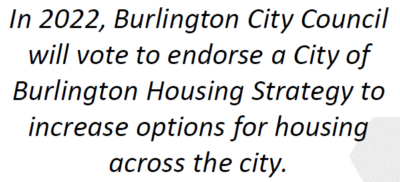 In 2022, Burlington City Council will vote to endorse a City of Burlington Housing Strategy to increase options for housing across the city.
In 2022, Burlington City Council will vote to endorse a City of Burlington Housing Strategy to increase options for housing across the city.
The tab for this one will be $300,000 that will go to Council on Januaryclsua 19th, which is the day that the book with the Operational budget gets placed in the hands of council.
The day after the public will get a chance to take part in a virtual Town Hall on the Budget.
A housing Strategy is a good idea. $300,000 is a lot of money to spend at a time when the budget the public will see later this week is going to have a lot of surprises.
Much more to learn about this latest idea from the mind of the Mayor and her Council.




















Let’s hope this time it works. Our last Mayor did the rounds four years ago with the ‘new’ strategy of the day, all about infill and modest developments. Very encouraging to me as a new resident of Burlington. In retrospect, I doubt he believed in it, and certainly the rest of Council (except the current Mayor) didn’t, and certainly turned their backs when citizens started to speak up against rampant towers.